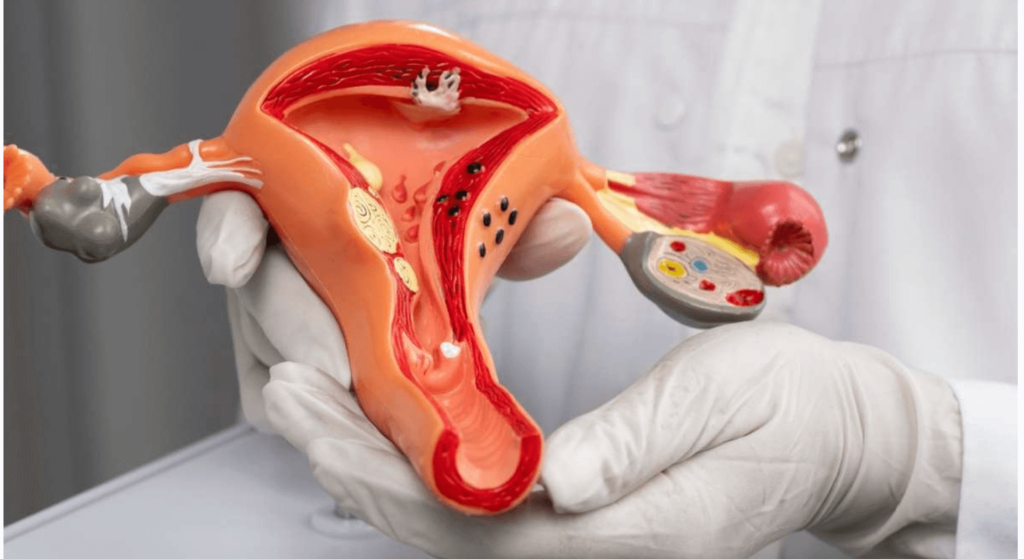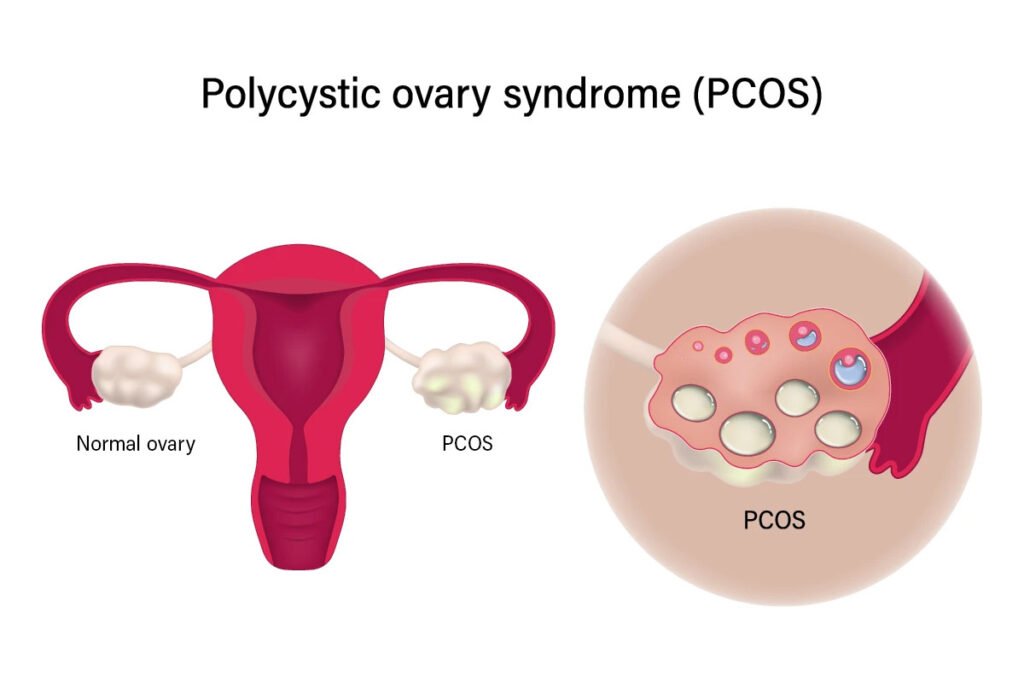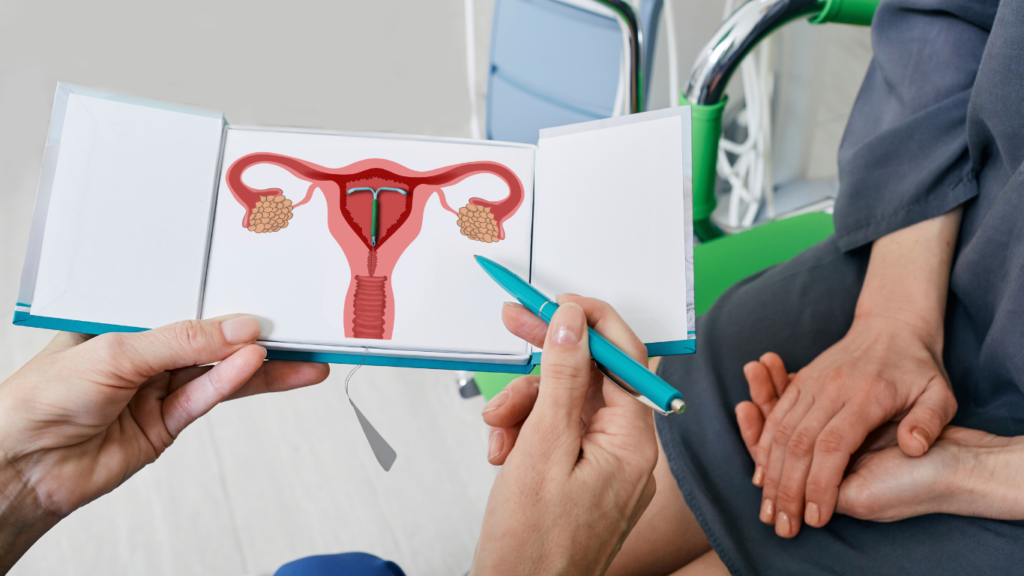Uterine fibroids, or leiomyomas or myomas, are noncancerous growths that develop within the uterus. They are composed of smooth muscle and fibrous tissue and are commonly found in women of reproductive age. Although fibroids are generally benign, they can cause various symptoms that may affect a woman’s quality of life. If you’re experiencing symptoms of fibroids or have been diagnosed, consulting the best gynecologist in Hyderabad can help you understand your condition and explore the treatment options available.
What Are Uterine Fibroids?
Uterine fibroids are the most common type of benign tumor found in the female reproductive system. They vary in size, number, and location within the uterus. Fibroids can be as small as a seed or as large as a grapefruit and may grow within the uterine wall, on its surface, or attached by a stalk. Some women have only one fibroid, while others may develop multiple fibroids.
There are several types of fibroids, classified based on their location in the uterus:
- Intramural Fibroids: These grow within the muscular wall of the uterus and are the most common type.
- Submucosal Fibroids: These develop in the inner lining of the uterus and can lead to heavy menstrual bleeding.
- Subserosal Fibroids: These grow on the outer surface of the uterus, sometimes pressing against nearby organs, causing pelvic pain.
- Pedunculated Fibroids: Attached to the uterine wall by a thin stalk, these fibroids can grow outside the uterus.
Seeing the best gynecologist in Hyderabad for an accurate diagnosis is essential to understanding the type of fibroid you may have and determining the best course of action.
Symptoms of Uterine Fibroids
While many women with uterine fibroids may not experience any symptoms, others may face various symptoms that range from mild to severe. The severity of symptoms often depends on the size, location, and number of fibroids. Common symptoms include:
- Heavy or Prolonged Menstrual Periods: One of the most common symptoms, heavy bleeding, can lead to anemia and fatigue.
- Pelvic Pain and Pressure: Large fibroids can cause pain and a feeling of fullness or pressure in the pelvic region.
- Frequent Urination: Fibroids that press against the bladder can increase the urge to urinate.
- Constipation: Fibroids located near the rectum may cause constipation or bowel discomfort.
- Backache or Leg Pain: Large fibroids can press against nerves in the pelvis, leading to pain in the back or legs.
- Pain During Intercourse: Certain types of fibroids, such as submucosal or subserosal, can cause discomfort during sexual activity.
- Difficulty in Conceiving: Fibroids, especially submucosal ones, can interfere with fertility by distorting the shape of the uterus or obstructing the fallopian tubes.
If you’re experiencing any of these symptoms, consulting the best gynecologist in Hyderabad Dr Neelima can help in diagnosing the cause and finding effective solutions.
Causes of Uterine Fibroids
The exact cause of uterine fibroids is unknown, but several factors are thought to contribute to their development, including:
- Hormonal Imbalance: Estrogen and progesterone, hormones responsible for regulating the menstrual cycle, play a role in fibroid growth. Fibroids tend to shrink after menopause when hormone levels decrease.
- Genetics: Women with a family history of fibroids are at a higher risk of developing them. Specific genetic changes within the uterine muscle cells may trigger fibroid growth.
- Age: Fibroids are more common in women in their 30s and 40s, especially during the reproductive years when estrogen levels are higher.
- Obesity: Being overweight or obese increases the risk of fibroids, as excess body fat can lead to higher estrogen levels.
- Lifestyle Factors: Diet, physical activity, and stress levels may also influence fibroid development. A diet rich in red meat and low in green vegetables has been associated with an increased risk of fibroids.
- Environmental Factors: Exposure to chemicals, such as certain endocrine-disrupting substances, may increase fibroid risk.
The best gynecologist in Hyderabad can assess your risk factors and suggest appropriate lifestyle modifications to manage fibroid growth.
How Are Uterine Fibroids Diagnosed?
If you have symptoms suggestive of fibroids, a gynecologist may recommend a series of diagnostic tests, including:
- Pelvic Examination: During a routine pelvic exam, the doctor may feel an irregularly shaped uterus, indicating the presence of fibroids.
- Ultrasound: A pelvic ultrasound uses sound waves to create images of the uterus, helping identify the size, location, and number of fibroids.
- Magnetic Resonance Imaging (MRI): MRI provides a more detailed image of fibroids and is often used when planning surgery.
- Hysterosonography: Also known as a saline infusion sonogram, this test involves filling the uterine cavity with saline to create clearer images of fibroids inside the uterus.
- Hysteroscopy: This minimally invasive procedure involves inserting a thin, lighted instrument through the cervix to view the inside of the uterus.
- Laparoscopy: In cases where fibroids are large or causing severe symptoms, a laparoscopy may be used to examine the pelvic cavity.
Getting a proper diagnosis from the best gynecologist in Hyderabad ensures an accurate understanding of your condition and helps tailor an effective treatment plan.
Treatment Options for Uterine Fibroids
The treatment for uterine fibroids varies based on factors such as the severity of symptoms, the location and size of the fibroids, and a woman’s desire to have children. Treatment options include:
1. Watchful Waiting
- For women with mild symptoms, a “wait and watch” approach may be recommended. Regular monitoring ensures that any changes in the fibroids’ size or symptoms are addressed promptly.
2. Medications
- Hormonal Therapy: Birth control pills, hormonal IUDs, and GnRH agonists can help manage symptoms like heavy bleeding but may not shrink fibroids.
- Nonsteroidal Anti-Inflammatory Drugs (NSAIDs): NSAIDs like ibuprofen can relieve pain but do not affect fibroid growth.
- Tranexamic Acid: This medication reduces heavy bleeding during periods but does not impact fibroid size.
3. Non-Invasive Procedures
- MRI-Guided Focused Ultrasound Surgery (FUS): This non-invasive treatment uses high-intensity ultrasound waves to destroy fibroid tissue without surgery.
- Uterine Fibroid Embolization (UFE): UFE is a minimally invasive procedure that blocks blood flow to the fibroids, causing them to shrink.
4. Minimally Invasive Surgery
- Myomectomy: This surgery removes fibroids while preserving the uterus. It’s a preferred option for women wishing to maintain fertility.
- Laparoscopic or Robotic Myomectomy: Minimally invasive techniques use small incisions, reducing recovery time and minimizing scarring.
5. Traditional Surgery
- Hysterectomy: For severe cases, a hysterectomy (removal of the uterus) may be recommended. This is the only permanent solution for fibroids and is generally considered for women who are not planning future pregnancies.
Consulting the best gynecologist in Hyderabad is essential for selecting the most suitable treatment based on individual needs and health conditions.
Natural Remedies and Lifestyle Changes
While natural remedies cannot cure fibroids, certain lifestyle changes may alleviate symptoms and improve quality of life. The best gynecologist in Hyderabad may recommend incorporating the following into your routine:
- Dietary Changes: A balanced diet rich in fruits, vegetables, whole grains, and lean proteins can help manage hormone levels. Foods high in fiber and low in red meat and refined sugars are beneficial.
- Regular Exercise: Physical activity can help maintain a healthy weight, regulate hormone levels, and reduce the risk of fibroids.
- Stress Management: High-stress levels can exacerbate hormonal imbalances. Incorporating stress management techniques such as yoga, meditation, and deep breathing can be beneficial.
- Herbal Supplements: Some women find relief from symptoms with herbal supplements like green tea extract, milk thistle, and chasteberry. However, these should be taken only under the guidance of a gynecologist.
- Hydration: Drinking enough water can help reduce bloating and improve overall health.
Importance of Early Detection and Regular Check-Ups
Regular gynecological check-ups can help detect fibroids early, especially if you are at higher risk due to family history or lifestyle factors. Early detection and monitoring are vital to managing symptoms and preventing complications. The best gynecologist in Hyderabad will provide a comprehensive approach to manage and treat fibroids, including personalized care plans that consider your reproductive goals and overall well-being.
Living with Uterine Fibroids: Coping Tips
For many women, living with fibroids can be challenging. Here are some tips to help manage symptoms and improve daily life:
- Track Symptoms: Keep a journal of symptoms, menstrual cycles, and any changes to discuss with your gynecologist.
- Pain Management: Apply a warm compress to the lower abdomen to relieve pelvic pain and discomfort.
- Seek Support: Joining support groups or talking to other women who have fibroids can help alleviate emotional stress and provide a sense of community.
Uterine fibroids are a common health issue, but with the right care and management, women can lead fulfilling lives despite the condition. Consulting the best gynecologist in Hyderabad is crucial for a thorough diagnosis and personalized treatment plan. Whether you choose medication, lifestyle changes, or surgery, early intervention and regular monitoring can make all the difference in managing fibroid symptoms effectively.



